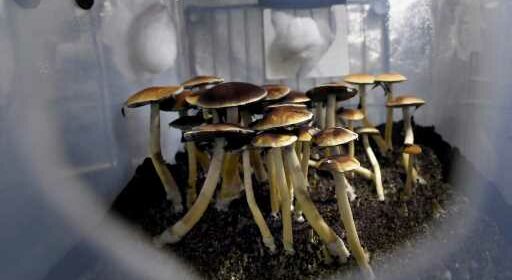Psilocybin legalization makes Colorado’s 2022 ballot

Colorado voters will be asked in November to decide whether or not to legalize psychedelic mushrooms and healing centers where they can be administered to the public.
Initiative 58, known as the Natural Medicine Health Act, has qualified for the Nov. 8 general election ballot, the Colorado Secretary of State’s Office announced Thursday.
“After reviewing a 5% random sample of the submitted signatures, the Elections Division of the Secretary of State’s Office projected the number of valid signatures to be 138,760, greater than 110% of the total number of signatures required for placement on the ballot,” a statement said.
If it passes, the Natural Medicine Health Act would effectively set the stage for a legal mushroom market by tasking Colorado regulators with creating rules around the cultivation, manufacturing, testing, transport, sales and purchase of psilocybin and psilocin. These substances would not be for sale at dispensaries or stores, but, rather, at “healing centers” that would be licensed by the state.
The goal of the measure, co-proponent Kevin Matthews told The Denver Post last month, is to make mushrooms available to locals 21 and up who are seeking therapeutic treatment. Psilocybin has yielded promising results in treating depression, PTSD, anxiety among the terminally ill and even nicotine addiction in university studies.
Because it sets up a new framework for treatment centers, regulators would also define the qualifications, education and training requirements necessary for facilitators who administer the substances. Notably, the measure states municipalities could not ban or prohibit the establishment of healing centers.
Additionally, the Natural Medicine Health Act would decriminalize the possession, use and gifting of psilocybin statewide.
In 2019, Denver became the first city in the United States to decriminalize the substance.
The measure calls for regulations to be in place and for the state to begin accepting license applications by Sept. 30, 2024, and also establishes a Natural Medicine Advisory Board to consult with lawmakers throughout the process. After two years, regulators would be able to add other psychedelics, including mescaline, dimethyltryptamine (DMT) and ibogaine to the regulated system.
There is a competing, citizen-led proposal, Initiative 61, that calls for statewide decriminalization of psychedelics without the establishment of a regulated market. That campaign, led by Decriminalize Colorado, is still collecting signatures and has until Aug. 8 to submit its petition.
Source: Read Full Article